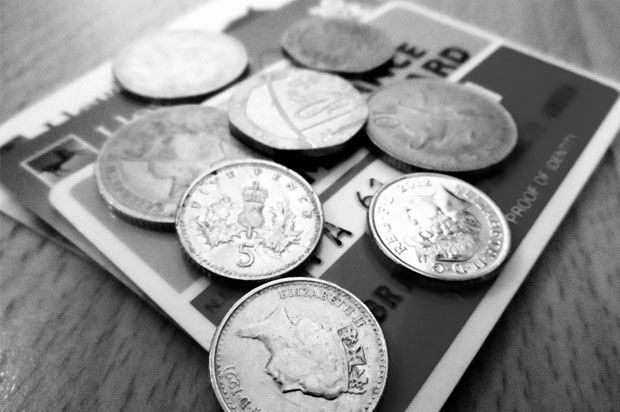Understanding PAYE tax, or Pay As You Earn
Every month your employer gives you a payslip. And every month a huge chunk of your money gets taken out by the Taxman, but you never really know where it all goes. So, How does it all work? Welcome to the world of PAYE tax, otherwise known as Pay As You Earn. What is PAYE? Read on to find out.

What is PAYE?
PAYE, meaning Pay As You Earn, is basically the money from your wages that goes towards paying taxes. The PAYE tax system is actually how you pay your income tax and national insurance (NI) which go towards state benefits and your state pension. This means that every time you’re paid, your boss takes your tax and NI from your wages straight off the bat and sends it on to HMRC (Her Majesty’s Revenue and Customs). So you never have to worry about paying PAYE tax because it’s already been done for you, and if you see PAYE on your pay slip you now know what it means.
Unfortunately, that’s not the end of it. There may be other costs knocked off your wages too, like re-payments of your student loan or pension contributions. If you’re curious as to what’s going where, there’ll usually be a breakdown on your payslip.
How much tax should I pay?
To make a long story short, until you earn over a certain amount, you don’t have to pay any income tax (cherish these moments while you can). This is what’s known as your personal allowance. Just FYI, for the tax year 2022-2023 it’s £12,750.
But once you’ve earned over that, the rest of your wages will be taxed at 20% a.k.a basic rate tax. And you better hold onto your hats (and then maybe return them) because the figures only get bigger. UK PAYE tax rates increase to 40% if you earn more than £50,271 and an even higher rate of 45% if you earn more than £150,000.
On top of this, at least 12% of your wages will go to national insurance if you earn more than £184 a week. Plus, you’re legally required to pay an additional rate of 2% if you earn over £967 a week.
Not to mention that in response to the pressures coronavirus has put on the NHS, from 6 April 2022 to 5 April 2023 National Insurance contributions will increase by 1.25%
Am I on the wrong PAYE tax code?
This is actually one thing you can rely on the government for. You see, HMRC gives your employer your tax code so they know how much tax to take from your wages.
Most people are on tax code 810L, which simply means (as above) you don’t pay tax on £12,750 of your wages a year, and pay 20% on the rest. If you’re on a different tax code you can check what it means on the gov.uk website. And if you think you’re on the wrong code, the best thing to do would be to call HMRC.
How much is emergency tax?
We should start off by explaining what emergency tax is. Essentially, when you start a new job you’ll often get an ’emergency tax code’. Your employer can then use this if HMRC hasn’t given them your tax code yet. Don’t worry though, it’s not actually an emergency. Normally, you’ll pay pretty much the same tax as if they had your permanent tax code. And on the off chance that you do end up paying too much tax, you’ll get the money back in your next wage packet.
We should flag that your tax codes are a bit more complicated if you have two jobs. You can find out more about second job tax and working two jobs here.
I’ve paid too much tax, can I claim tax back?
Totally. You simply have to claim a rebate at the end of the year by contacting HMRC. If you’re unsure how to do that, we talk you through claiming a tax refund here.
I’m self-employed, how do I pay tax?
If you’re self-employed, or earn anything substantial on top of your wages, you pay your tax through self assessment. To do this, you’ll have to keep track of all your earnings and complete a self assessment tax return form. Still confused? Get answers to all your self employment tax questions in this article.
If you have a change in circumstances during the tax year
If your circumstances change during the tax year – for example, if you elope and suddenly become eligible for a Married Couples Allowance – HMRC should be your third call. After both sets of parents of course.
That’s everything you need to know about the Pay As You Earn system used in the UK. Any unanswered questions or queries about PAYE pay slips and tax can be asked on the discussion boards.
Next Steps
- Chat about this subject on our Discussion Boards.
By Nishika Melwani
Updated on 03-Apr-2022
No featured article










